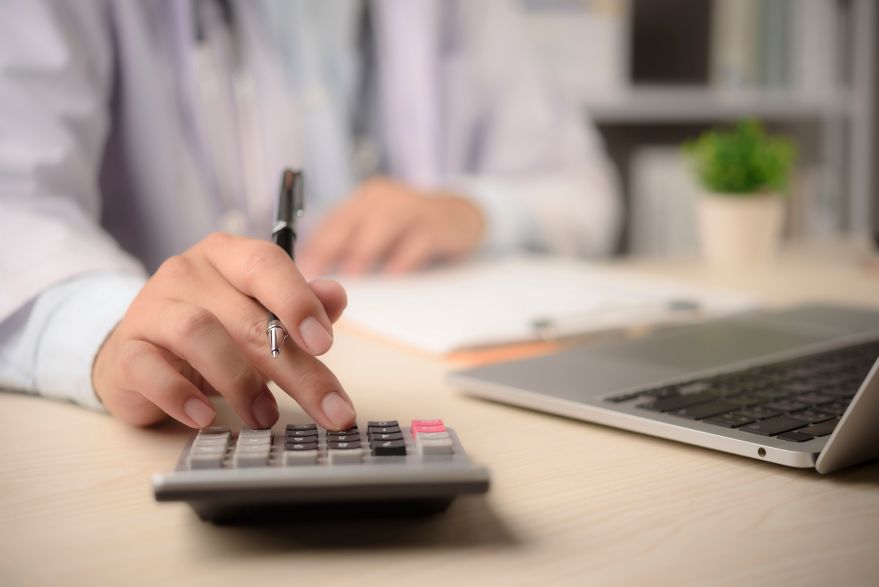If you work for yourself and you’re staring down the barrel of an upcoming tax return, you’ve probably asked yourself: “What expenses can I claim as self-employed?” It’s a smart question – and one that can save you a significant chunk of money.
Here at Howden Insurance we know running a business comes with costs. Fortunately, HMRC allows you to deduct many of these expenses from your revenue, reducing your taxable profit and, ultimately, your tax bill. In this guide, we’ll walk you through the ins and outs of allowable expenses, offer a handy sole trader expenses list, and share practical tips on how to claim them.
Let’s dive in.
What counts as a business expense?
HMRC’s golden rule is simple: if an expense is incurred “wholly and exclusively” for business purposes, it’s likely to be tax deductible. Things get trickier when an item is used for both business and personal reasons – but we’ll tackle that shortly.
Here’s a breakdown of common allowable expenses:
Office, property and equipment
- Rent, business rates, utilities, and insurance
- Stationery and office supplies
- Computers, printers, and other equipment (claimed differently depending on your accounting method)
Car, van and travel
- Fuel, insurance, and maintenance (for business use)
- Public transport fares, hotel stays, parking fees, and vehicle hire for business trips
Clothing
- Uniforms and protective gear
- Costumes for performers
- Everyday clothing is not claimable—even if worn for work
Staff costs
- Salaries, bonuses, pensions, benefits
- Agency fees and subcontractors
- Employer’s National Insurance contributions
- Business-related training courses
Reselling goods
- Goods for resale
- Raw materials and direct production costs
- Excludes personal-use items and equipment depreciation
Legal and financial costs
- Accountant and solicitor fees
- Bank charges, credit card fees
- Business insurance policies
Marketing and subscriptions
- Newspaper ads, bulk mail campaigns, free samples
- Website costs
- Not claimable: client entertainment or hospitality
Training courses
- Courses that improve or update skills relevant to your business
- Training for new industry developments
Mixed-use expenses: what’s the deal?
Some expenses serve both personal and business purposes. You can claim these – but only the business portion. Here’s how:
- Mobile phone: Track usage and claim the business percentage (e.g., 60% of your bill if 60% of calls are work-related).
- Home internet: Estimate business use based on your work habits.
- Car: Choose between calculating actual business use or using HMRC’s simplified mileage rates.
HMRC expects realistic estimates and solid records. Be ready to justify your calculations if asked.

What can you claim without receipts?
While HMRC prefers receipts, they do allow simplified claims in some cases:
Simplified vehicle expenses
- 45p/mile for cars and vans (up to 10,000 miles)
- 25p/mile after 10,000 miles
- 24p/mile for motorcycles
Working from home
- £10/month for 25–50 hours
- £18/month for 51–100 hours
- £26/month for 100+ hours
For everything else, keep digital or paper records such as:
- Bank and credit card statements
- Emails and digital receipts
- Purchase orders and contracts
HMRC can request records going back six years—so good habits pay off.
How to claim self-employed expenses
Claiming expenses is straightforward if you stay organised. Here’s how:
Through your self-assessment tax return
- Keep records throughout the year
- Submit your return by 31 January after the tax year ends
- Report expenses in the self-employment section
- Categorise expenses according to HMRC guidelines
Using traditional accounting
- Record income and expenses by invoice/bill date
- Deduct allowable expenses from income
- Report totals in your Self-Assessment
On a cash basis
- Record income when received, expenses when paid
- Report transactions as they appear in your bank account
- Suitable for businesses earning up to £150,000 annually
Whichever method you choose, use a dedicated business bank account and reliable accounting software to simplify the process.
As a self-employed individual in the UK, you can claim a wide range of expenses to reduce your tax bill. The key is that they must be wholly and exclusively for business use. For mixed-use items, claim only the business portion and keep clear records.
Receipts aren’t always required, but good documentation is essential. Use digital tools to stay organised, and don’t hesitate to consult an accountant if you’re unsure – getting it right can make a big difference.
At Howden, we’re here to support you whatever business you’re in, while you focus on what you do best; getting the job done.
You could also read:
- The UK towns where you’re most likely to pass your theory test
- Garden builds & boundary battles: what’s allowed
- Britain’s car thieves have a new target
- Rental laws are changing – landlords, are you covered?
- What the Bank of England base rate cut means for you
This is a marketing blog by Howden Insurance.

